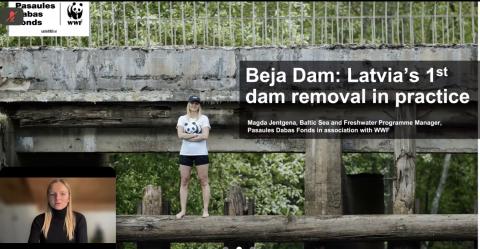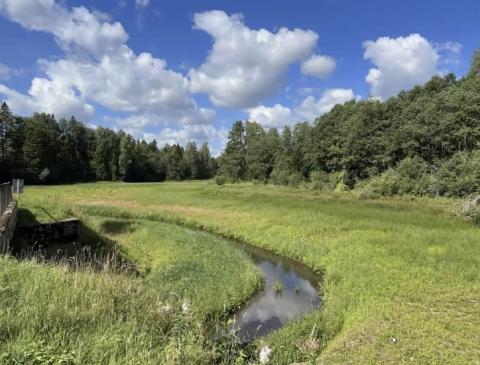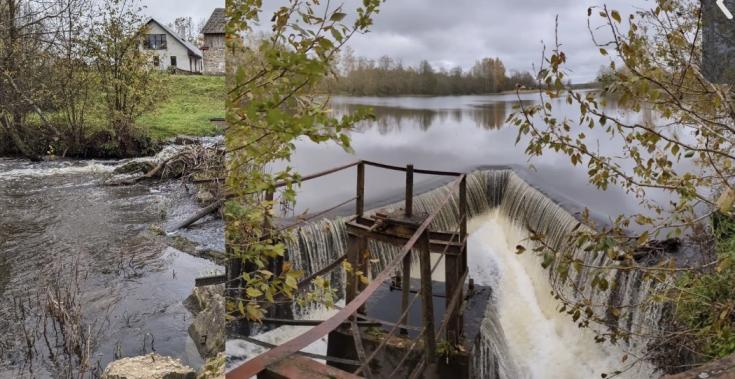Webinar Recap: River & Catchment Protection Good Practices
RIWET welcomed almost 70 participants, including key experts, policymakers, and stakeholders from across Europe at an online event to exchange insights and best practices in water management. This first in a series of project webinars was organised and hosted by our RIWET partners from the University of Latvia.
Sharing Best Practices in Water Management
The webinar aimed to foster collaboration among RIWET project partners and stakeholders by sharing best practices in river and catchment protection.
The event featured expert insights from three invited speakers:
- Jānis Šīre (Latvian Environment, Geology, and Meteorology Centre) presented the LIFE GoodWater IP project, one of the largest ongoing water management initiatives in Latvia. His talk focused on implementing various water restoration measures to achieve good surface water status.
- Petri Ekholm (SYKE, Finland) discussed the use of soil amendments to reduce agricultural phosphorus loading (e.g. gypsum amendment and Interreg BSR project GYPREG), sharing Finnish experiences in both domestic application and export.
- Magda Jentgena (WWF Latvia) introduced Beja Dam, Latvia’s first dam removal project, offering insights into the ecological and logistical aspects of river restoration, while emphasizing the importance of early stakeholder involvement to ensure project success.

The presentations and discussions underscored various water and catchment protection measures that can help restore and improve water bodies with poor ecological status. A key message was that no single measure works for all rivers or catchments, but by understanding the pros and cons per situation, stakeholders can choose the most effective solutions.
RIWET and good practices
Inga Retike (University of Latvia) started the second part of the webinar by providing an overview of the EU’s 3rd cycle River Basin Management Plans. Participants explored ecological, chemical, and quantitative water status across EU Member States, identifying key pressures affecting water quality (for more visit WISE system). Another highlight was the showcasing of some RIWET good practices from the Netherlands (Lead Partner, Roos Galjaard from Provincie Drenthe) and Latvia (Jānis Bikše, University of Latvia). These were recently published on the Interreg Europe platform.
Stakeholder engagement and feedback
Additional chat discussions focused on managing beaver populations and their impact on fish habitats, the benefits of selective tree and debris removal for river restoration, and the role of constructed wetlands in water purification. There was high interest in the effectiveness of fish pass designs, the cost-benefit analysis of river meandering, and the need for legislative changes to support tree planting along water bodies. Moreover, it was emphasized that stakeholder engagement and policy influence in water governance is crucial for sustainable environmental management.
Interest for this exchange of good practices regarding river and catchment protection was significant, with more than 100 registrations from 11 different countries (Latvia, the Netherlands, Albania, Finland, Greece, Ireland, Italy, Poland, Slovenia, Spain, and Ukraine). A broad range of stakeholders attended, with representatives from research and academia and regional authorities making up more than 60% of the audience while the remainder came from local and national authorities.

What’s Next?
This event was the first in a series of RIWET webinars , with at least two more planned. Attendees will receive a recording of the session, as well as a feedback questionnaire to help shape future discussions by collecting suggestions on topics, speakers, and projects of interest.
Want to learn more about the RIWET partners, the goals and ambitions? Watch this project introductory movie!
Stay updated on upcoming webinars and RIWET activities. You can find more on the RIWET website or follow us on LinkedIn

